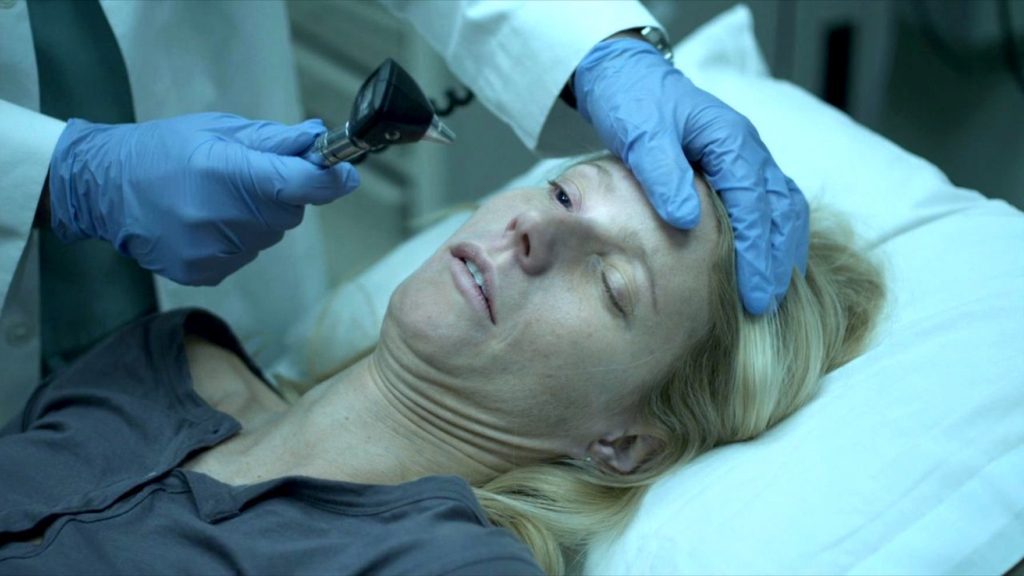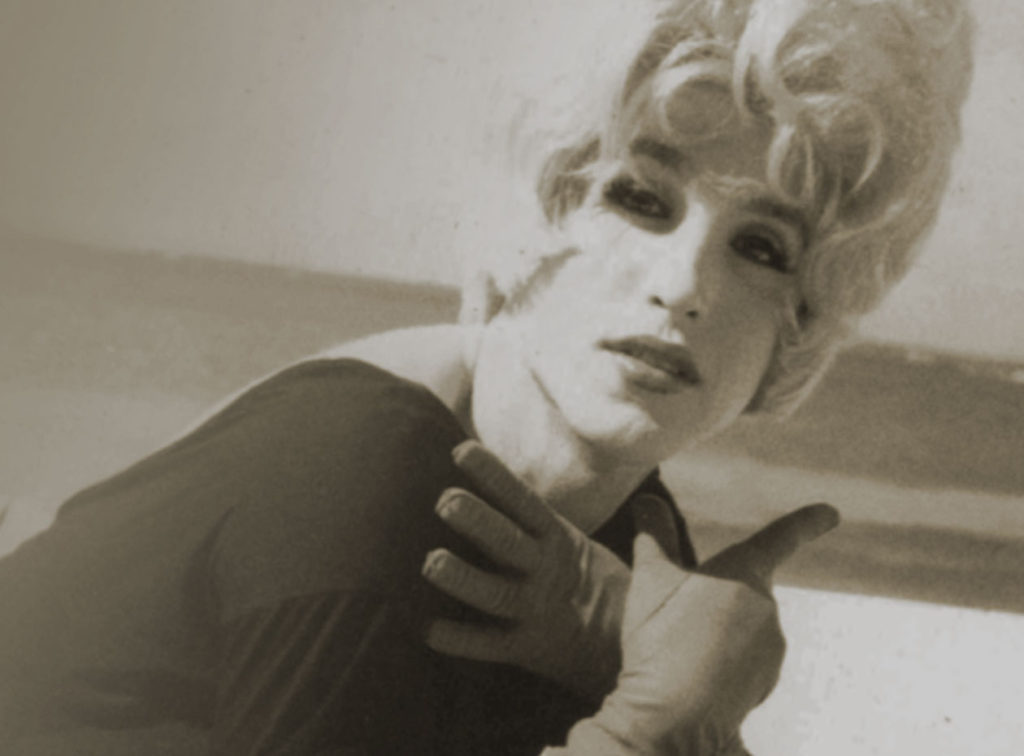Reflections 16

When I worked in an arts institution, a colleague asked me, “What does ‘festival experience’ mean?” At the time, I thought the question was daft. Surely, working in a building that houses such experiences would mean knowing that experience – something uniquely felt, but, at the same time, tied to a shared environment or atmosphere. But don’t it always seem to go that you don’t know what you’ve got till it’s gone?
Over the past year, I have written and edited the words ‘pandemic’, ‘coronavirus’ and ‘Covid’ in film writing more times than I could ever have imagined, even if I were writing constantly on Steven Soderbergh’s Contagion (2011). And even as the pandemic ends, it will be in the wake of an epidemic, and so there is, if nothing else, longevity in our new-found film critical normal. But, for all of the acknowledgements of not seeing films in their full aspect ratios (no matter how good your home set-up, few have top/bottom and side masking and full CinemaScope), and for not hearing the score or design in 7.1, how many critics have really considered the effects of the pandemic on our craft as well as our industry?
Artist, programmer, and researcher Abby Sun recently put it in her simply titled article, Criticism, for Woche der Kritik, “[T]he phenomenon of festivals and their seismic re-ordering of the systems that produce and disseminate films remain underexamined.” Sun continues, “Festivals aren’t merely reacting to social conditions, they are often the primary creators of them. If we start to seriously consider the art workers who populate the festival circuit’s selection committees, organize its print traffic and delivery, throw its parties, and produce its private meeting spaces within film criticism, the recursive effects that individual agents exert on festivals and thus the wider industry becomes clear.”
This last fortnight, I tried to ‘attend’ two virtual film festivals and found it almost impossible. There is no ‘festival experience’ in my apartment. Just an unmade bed, a broken chair, and a half-eaten bowl of porridge. And, honestly, if I can’t manage to watch more than a handful of films from each festival’s programme, how on earth do I imagine I would find the energy or time to further interrogate the systems that produce this lacklustre event and non-existent atmosphere, which even if I screenshot and Insta constantly (with fancy filters and gifs) is in no way shared? I am tired of festivals. I can’t even imagine how the people who run them must feel.
So, I joined (relatively) new audio-chat app Clubhouse (launched 2020) and listened in as Sun, joined in conversation by Jemma Desai, Kevin B. Lee, Vadim Rizov, and others, sparked by the ideas in her call-to-action-article, talked about reviewing and reporting, and engaging in/with the industry at large. A lot of very brilliant things were said. The few that most struck me and stuck with me were around the notion of criticism as in service of disruption, authenticity, transparency, and accountability.
Among the many earnest and piercing examples given (and please excuse my brevity here in attributing what were far more in depth and articulate words spoken), Desai talked about having testimony edited as if it were a draft article (by a major UK publication), and about how so many people who may even want to talk about the issues, never translate that into wanting to do anything to challenge or change them. I don’t just believe Desai; I know it to be true. And I’ve already said as much: I am tired of festivals.
It was, for me, when Lee talked about his past experience as a mentor for the Berlinale Talent Press, that I really understood what Sun meant about the social conditions and systems that produce the culture and industry in which we, as artists, writers, thinkers, hopefuls, live and die by. Lee said that, this year, he and the other mentors had had enough of their limited and limiting role as “glorified copy editors”. As Berlinale Talent Press alumni, I am relieved to hear this. I still regret that I didn’t demand more of my mentor. They told me to take an adjective out. I learned a little. Not nearly enough. To enter this industry (writing/working in the English language, at least) is not just hard, it is downright stacked against anyone who doesn’t fit the now unfit mould. I have never cared about having the most reviews published, or being the most industry-adored, or having the most pull quotes (after a decade as a working critic, I happily have none). But what I do care about is the quality of criticism. Like, I really care. About what it is, what it strives for, and how we, if we identify as critics, engage with, stretch, challenge, undo, and further the knotty thing that is engaging with, reflecting upon, and responding to an audio-visual work of moving image art. But I attended the Talent Press and, despite meeting illustrious editors and attending more parties than usual, it did nothing for my craft, and the only thing it did for my career was by way of introduction to the lovely and very clever José Sarmiento Hinojosa (Co-director at desistfilm), a fellow participant on the course.
Lee also talked about the “turn towards authenticity”, which, to me, sounds like a return to form – why and when did critics stop being subjective in their writing? I suppose, if one can separate themselves from the industry around them, then the medium and the message might as well be just as far out of reach. But films, like their content, don’t live in a cultural vacuum. Films are a part of a wider experience and when critics don’t engage with the fuller picture, what is their so-called criticism in service of? There are many publications, online and in print, that don’t know the answer to this question. Many of them are reputable, many of them bolster the social media presence and, one therefore assumes, the inflated egos of the semantically barren.
But the reason critics don’t engage with the modes of production – for the most part, at least – is because there is no economic or status-led imperative to do so and, the greatest myth the film industry ever pulled was in convincing its aspirational gig-economy-led workforce that any other motivation doesn’t exist. That is to say that if the aim for most so-called critics is simply to get paid, or even just to get accredited, to get access to seeing films first, so that they can hot-take their firstness in the hopes of inspiring FOMO in other, slightly less well connected and accredited critics, well, why would we expect them to dish on the industry that granted them an email login to Shift72?
Desai, one of the voices we are most fortunate to have, but due to our treatment of her, don’t in any way deserve, said that “certain critics don’t get edited”. So much is certain. Forgetting even, for a moment, the factual errors, typos, and stupid hot takes, I can’t for the life of me understand why so many outlets publish so many words that so rarely say anything other than the repeated story of the film. The ability to recount narrative is not, so far as I am aware, the demonstration of a critical mind at work. And yet, this is what the landscape not only reveals, but revels in. Champions, celebrates, and, most damningly, commissions, time and again.
That which is missing is every bit as important as that which is present.
If we don’t look at and call for gaps to be filled, our history as well as our historiography is threatened. This is why Abby Sun’s Criticism is so important. And why Jemma Desai’s This Work isn’t For Us, and So Mayer’s A Nazi Word for a Nazi Thing are so important. They stand now as archive items for future time travelling researchers to discover and to say, with certainty, that someone called it (out).
In P.S. Burn This Letter Please (2020 – screened at BFI Flare), through the discovery of a private archive of letters from New York drag queens to radio DJ Reno Martin (the nom de plume for Hollywood talent agent Ed Limato when living in Los Angeles, in the 1950s), almost a dozen stories of resistance and personal, political existence are told. It is only one-way correspondence that the doc is able to offer. It is fragmented; there is more to each and every one of the stories told. And yet, it still tells those stories. Just as the New York drag scene and drag balls of the 1950s would be lost without personal testimony, so too would the film industry’s persistent exploitation of its workforce (its key audience) and social tent-pole holders (festivals) be lost without the curiosity, testimony, and research of Sun, Desai, Mayer, and others.

In my apartment, where my ‘festival experience’ should be, I sit holding my son’s hand as we watch Family Shorts 1 from the Glasgow Short Film Festival’s online programme. He giggles and shouts “Bear!” at the screen when Goldilocks and the Three Families of Bears (2020) comes on. We watch the Little Woolly Vision together, wondering why this strange white woman simply saunters into the houses of others and tests, tries, and takes what she wants, leaving destruction and despair in her wake. Perhaps she is the chairperson of the board for a film festival, and is explicating Sun’s descriptor, “As before COVID-19, film festivals are equally sites of inclusion and exclusion, of abundance and scarcity. In fact, they thrive off these paradoxes.” Goldilocks ‘visits’ the bears, but does she garner anything about their experience? And what does she learn and apply as she moves from one scene of exploitation to another? Or is it just an unmade bed, a broken chair, and a half-eaten bowl of porridge?
















